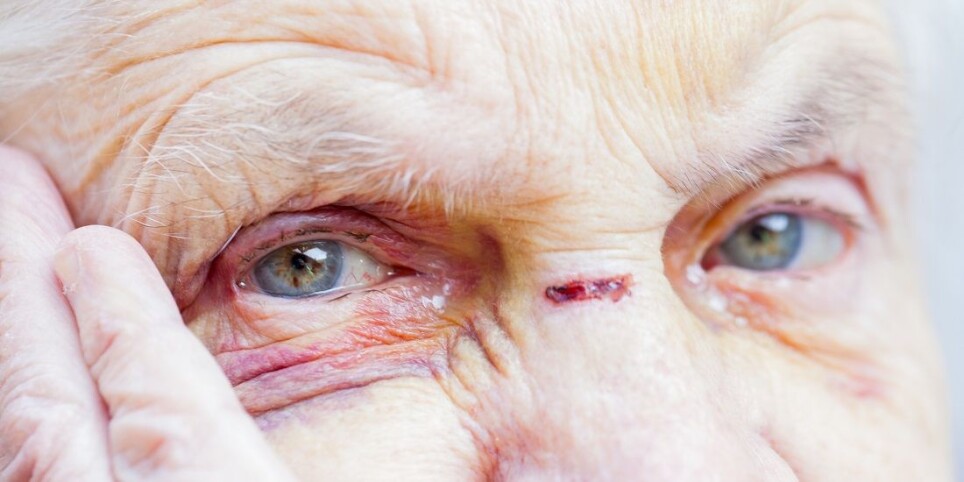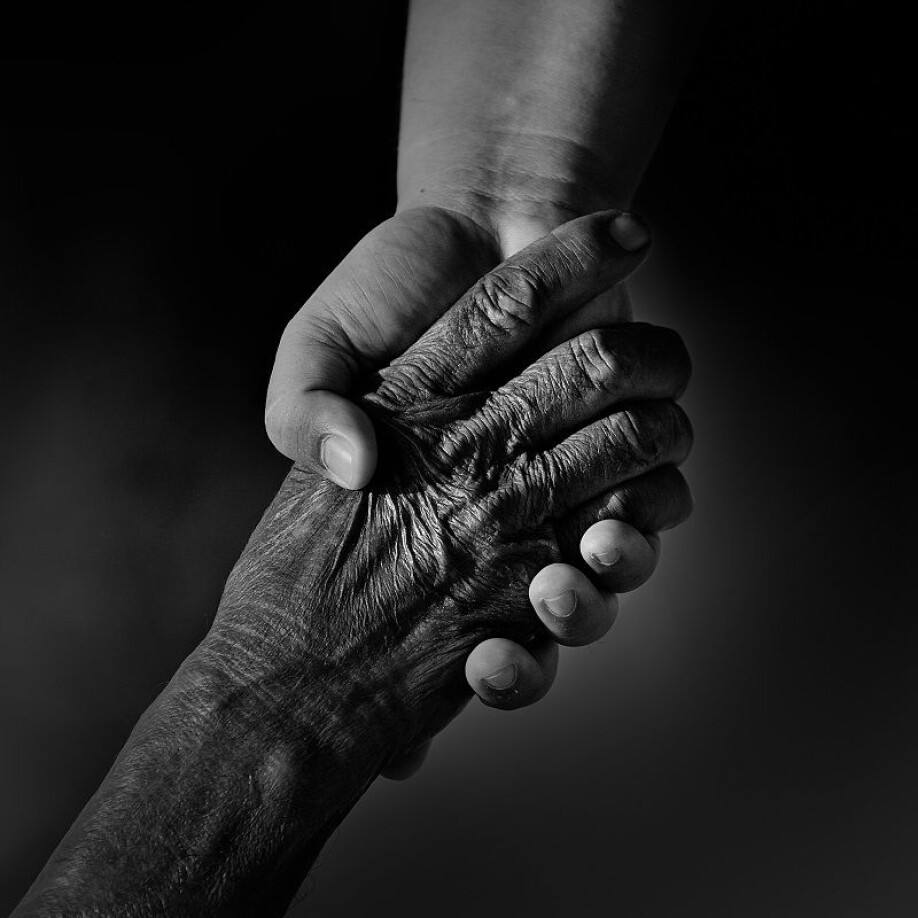THIS ARTICLE/PRESS RELEASE IS PAID FOR AND PRESENTED BY NTNU Norwegian University of Science and Technology - read more

Abuse of the elderly is widespread
A majority of employees in Norwegian nursing homes have committed abuse or neglect of the elderly, a comprehensive report shows.
Abuse of older patients in nursing homes is common. In a new survey, around 60 per cent of nursing home staff report that they have committed violence, abuse or neglect of the elderly. The NTNU report that has documented these findings has led the Norwegian Parliament (Storting) to take action.
As many as 76 per cent of health care staff say they have seen other health personnel commit abuse. Nearly 89 per cent have observed aggression between elderly residents and about 46 per cent have observed at least one incident of violence and abuse committed by relatives in the past year. (See fact box.)
Earlier this year, researchers at NTNU completed a major project on violence against the elderly in nursing homes. Their research has already generated concrete results that will improve the situation for older patients.
The Storting has asked the government to ensure that there is a duty to report when elder abuse occurs, and that national rules be developed for handling violence against the elderly.
Reducing violence against the elderly
“Our goal is to reduce violence and abuse in nursing homes,” says associate professor Wenche Karin Malmedal from NTNU’s Department of Public Health and Nursing.
Malmedal has been manager of a research project that surveyed the situation for nursing home residents in Norway. Professor Arne Henning Eide from NTNU’s Department of Public Health and Nursing was the project manager. He is also the acting research director at SINTEF Digital, Health research department. Anja Botngård was a PhD research fellow for the project. She defended her dissertation in April 2021.
Approximately 100 randomly selected nursing homes from all over Norway participated in the survey, and the data collection was completed in January 2019. The data showed that the situation was serious, and the authorities were contacted.

Parliament took unanimous action
Malmedal and Eide met then-Minister for the Elderly Sylvi Listhaug in December 2019.
“We talked about the need for reporting and that this should be introduced. After that I was contacted by the Progress Party (Frp) in connection with formulating a recommendation to the Storting,” says Malmedal.
Through her involvement in the Norwegian Association of Pension Funds, Malmedal provided written input to the parliamentary Standing Committee on Health and Care Services, which she signed both in her NTNU capacity and as a member of the Pensioners’ Association. The NTNU research was also described in her recommendations to the Storting.
On 25 May this year, the Storting unanimously adopted the following two points:
- The Storting asks the government to establish national guidelines for the investigation and handling of cases of elder abuse.
- The Storting asks the government to establish a duty to report to the supervisory authorities when there is reason to believe that the elderly are exposed to violence and abuse.
Supervisors often don’t know
The survey also shows that nursing home supervisors often do not have a full overview of conditions for their residents.
Supervisors describe incidents where residents are subjected to violence and abuse from relatives, other residents or employees. But many supervisors have complex and demanding work responsibilities that make it difficult for them to detect, deal with and prevent violence and abuse.
“We want our research to help management find good strategies for reducing violence and abuse in Norwegian nursing homes,” says Eide.
Age discrimination
Elder abuse occurs all over the world. The World Health Organization (WHO) believes that between three and five per cent of the elderly over the age of 65 are subjected to some form of abuse.
But research on violence against the elderly in nursing homes has not been a priority. Until now.
“We know that age discrimination occurs, including within the health care system. This can lead to elder abuse not receiving the necessary attention that would enable us to prevent and deal with the situation in a good way,” says Malmedal.

Need more people with health education
Several factors come into play for both the individuals who commit abuse and those who report it.
“Employees who have a health education background, poor mental health, a desire to quit their job or a poor attitude towards the elderly reported more situations than employees with no health education, good mental health, a desire to stay in their job and good attitudes towards the elderly,” says Eide.
Employees with health education report abuse and violence more often than people without health education do.
“This finding could have several reasons. It may be that health-educated nursing staff are more often assigned to work with residents with dementia and challenging behaviours. Another possibility is that health-educated staff have greater knowledge and expertise that enables them to reflect more critically on their own practices, and thus to more easily recognize and report negative events,” says Eide.
Among the measures that the researchers have proposed to politicians is having more people with a background in health education at the worksite at all times.
Dementia often a contributing cause
Employee behaviour is far from the only problem. Abuse among residents or between relatives and residents is very widespread.
Previous research shows that behavioural problems due to dementia are among the greatest risk factors for aggression between residents.
“International research further shows that such incidents can be related to mental illness, physical injury, reduced quality of life, long-term disabilities and death,” says Malmedal.
Increasing employee expertise in dementia, violence and abuse could also help the situation, according to the researchers. Smaller and more home-like settings for residents with dementia are another recommendation. Welfare technology such as various alarms and sensors can create security and prevent unrest.
The project has now been completed, following seven research articles and conclusions that were clear enough for the Storting to take action. The research was supported by the Research Council of Norway.
Read more about the many research findings on this project page.
———
Read the Norwegian version of this article at forskning.no
See more content from NTNU:
-
Why is nothing being done about the destruction of nature?“We hand over the data, but then it stops there"
-
Researchers now know more about why quick clay is so unstable
-
Many mothers do not show up for postnatal check-ups
-
This woman's grave from the Viking Age excites archaeologists
-
The EU recommended a new method for making smoked salmon. But what did Norwegians think about this?
-
Ragnhild is the first to receive new cancer treatment: "I hope I can live a little longer"





































